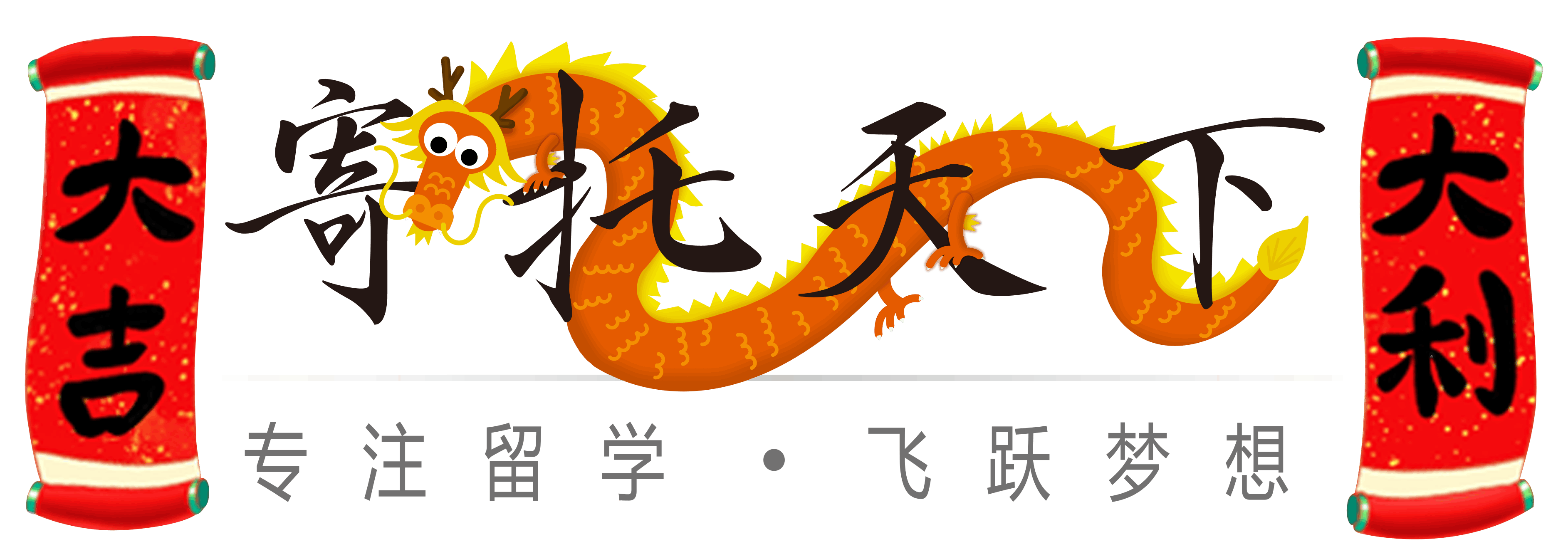- 最后登录
- 2016-10-11
- 在线时间
- 4639 小时
- 寄托币
- 23288
- 声望
- 3963
- 注册时间
- 2008-1-2
- 阅读权限
- 255
- 帖子
- 2209
- 精华
- 50
- 积分
- 49079
- UID
- 2487572
   
- 声望
- 3963
- 寄托币
- 23288
- 注册时间
- 2008-1-2
- 精华
- 50
- 帖子
- 2209








|
本帖最后由 草木也知愁 于 2009-6-21 16:28 编辑
汇总列表:
0910AW SPECTACULAR 之【SU & SY SO】汇总贴 & DAY I 主谓一致
0910AW SPECTACULAR 之【SU & SY SO】第二期——情态动词
0910AW SPECTACULAR 之【SU & SY SO】第三期——冠词、数词
0910AW SPECTACULAR 之【SU & SY SO】第四期——虚拟语气
0910AW SPECTACULAR 之【SU & SY SO】第五期——倒装
0910AW SPECTACULAR 之【SU & SY SO】第六期——从句
0910AW SPECTACULAR 之【SU & SY SO】第七期——名词
0910AW SPECTACULAR 之【SU & SY SO】第八期——代词
0910AW SPECTACULAR 之【SU & SY SO】第九期——动词的时态
0910AW SPECTACULAR 之【SU & SY SO】第十期——连词
0910AW SPECTACULAR 之【SU & SY SO】第十一期——动词、动词语态
0910AW SPECTACULAR 之【SU & SY SO】第十二期——动词不定式、分词、动名词
0910AW SPECTACULAR 之【SU & SY SO】第十三期——独立主格、特殊词
==========================
前言
==========================
最后一期,大功告成
特地选择了十三这个数结束
因为是最不好的数字 我们把它留在身后 以后的日子里 就再也不会遇见了
独立主格是一个高级语法项,真的在写作用一篇文章也不一定用到一个
不过,本着求全的心理,还是在这里展示给大家
有闲的同学可以重点掌握一下
关键时刻show出来
那些特殊词倒是对写作、阅读、听力都有很多帮助
要好好看 好好辨析
以后的日子里,要时刻记住这十三期语法训练
一定要加油!
==========================
独立主格
==========================
1 独立主格
(一):独立主格结构的构成:
名词(代词)+现在分词、过去分词;
名词(代词)+形容词;
名词(代词)+副词;
名词(代词)+不定式;
名词(代词) +介词短语构成。
(二) 独立主格结构的特点:
1)独立主格结构的逻辑主语与句子的主语不同,它独立存在。
2)名词或代词与后面的分词,形容词,副词,不定 式,介词等是主谓关系。
3)独立主格结构一般有逗号与主句分开。
举例:
The test finished, we began our holiday.
= When the test was finished, we began our holiday.
考试结束了,我们开始放假。
The president assassinated, the whole country was in deep sorrow.
= After the president was assassinated, the whole country was in deep sorrow.
总统被谋杀了,举国上下沉浸在悲哀之中。
Weather permitting, we are going to visit you tomorrow.
如果天气允许,我们明天去看你。
This done, we went home.
工作完成后,我们才回家。
The meeting gone over, everyone tired to go home earlier.
会议结束后,每个人都想早点回家。
He came into the room, his ears red with cold.
他回到了房子里,耳朵冻坏了。
He came out of the library, a large book under his arm.
他夹着本厚书,走出了图书馆
2 With的复合结构作独立主格
表伴随时,既可用分词的独立结构,也可用with的复合结构。
with +名词(代词)+现在分词/过去分词/形容词/副词/不定式/介词短语
举例: He stood there, his hand raised.
= He stood there, with his hand raise.
典型例题
The murder was brought in, with his hands ___ behind his back。
A. being tied B. having tiedC. to be tiedD. tied
答案D. with +名词(代词)+分词+介词短语结构。当分词表示伴随状况时,其主语常常用with来引导。由于本句中名词"手"与分词"绑"是被动关系,因此用过去分词,选D.
注意:
1) 独立主格结构使用介词的问题:
当介词是in 时,其前后的两个名词均不加任何成分(如物主代词或冠词),也不用复数。但 with 的复合结构不受此限制
A robber burst into the room, knife in hand.
( hand前不能加his)。
2) 当表人体部位的词做逻辑主语时,及物动词用现在分 词,不及物动词用过去分词。
He lay there, his teeth set, his hand clenched, his eyes looking straight up.
典型例题:
Weather___, we'll go out for a walk.
A permitted B permitting C permits D for permitting
答案 B. 本题中没有连词,它不是复合句,也不是并列句。句中使用了逗号,且we 小写,可知其不是两个简单句。能够这样使用的只有独立主格或with的复合结构。据此判断,本句中使用的是独立结构, 其结构为:名词+分词。由于permit在这里翻译为'天气允许',表主动,应用现在分词,故选B。
如果不会判断独立结构作状语的形式,不妨将句子改为条件句,例如本句改为If weather permits, we'll go out for a walk. 然后将if 去掉,再将谓语动词改为非谓语动词即可。
==========================
特殊词
==========================
1 stop doing/to do
stop to do停止,中断做某事后去做另一件事。
stop doing停止做某事。
They stop to smoke a cigarette. 他们停下来,抽了根烟。
I must stop smoking. 我必须戒烟了。
典型例题
She reached the top of the hill and stopped ___on a big rock by the side of the path.
A. to have restedB. resting C. to restD. rest
答案: C。由题意可知,她到了山顶,停下来在一个路边的大石头上休息。因此,应选择"stop to do sth. 停下来去做另一件事"。而不仅仅是爬山动作的终止,所以stop doing sth.不正确。
2 forget doing/to do
forget to do忘记要去做某事。(未做)
forget doing忘记做过某事。(已做)
The light in the office is stil on. He forgot to turn it off.
办公室的灯还在亮着,它忘记关了。(没有做关灯的动作)
He forgot turning the light off.
他忘记他已经关了灯了。 ( 已做过关灯的动作)
Don't forget to come tomorrow.
别忘了明天来。 (to come动作未做)
典型例题
---- The light in the office is still on.
---- Oh,I forgot___.
A. turning it off B. turn it off C. to turn it off D. having turned it off
答案:C。由the light is still on 可知灯亮着,即关灯的动作没有发生,因此用forget to do sth.
而forget doing sth表示灯已经关上了,而自己忘记了这一事实。此处不符合题意。
3 remember doing/to do
remember to do 记得去做某事 (未做)
remember doing记得做过某事 (已做)
Remember to go to the post office after school.
记着放学后去趟邮局。
Don't you remember seeing the man before?
你不记得以前见过那个人吗?
4 regret doing/to do
regret to do 对要做的事遗憾。(未做)
regret doing 对做过的事遗憾、后悔。(已做)
I regret to have to do this, but I have no choice.
我很遗憾必须这样去做,我实在没有办法。
I don't regret telling her what I thought.
我不为告诉她我的想法而后悔。
典型例题
---You were brave enough to raise objections at the meeting.
---Well, now I regret ___ that.
A. to do B. to be doing C.to have done D.having done
答案:D。regret having done sth. 对已发生的事感到遗憾。regret to do sth. 对将要做的事感到遗憾。本题为对已说的话感到后悔,因此选D。
5 cease doing/to do
cease to do 长时间,甚至永远停做某事。
cease doing 短时停止做某事,以后还会接着做。
That department has ceased to exist forever.
那个部门已不复存在。
The girls ceased chatting for a moment when their teacher passed by.
姑娘们在老师走过时,停了会聊天。
6 try doing/to do
try to do努力,企图做某事。
try doing 试验,试着做某事。
You must try to be more careful.
你可要多加小心。
I tried gardening but didn't succeed.
我试着种果木花卉,但未成功。
7 go on doing/to do
go on to do做了一件事后,接着做另一件事。
go on doing 继续做原来做的事。
After he had finished his maths,he went on to do his physics.
做完数学后,他接着去做物理。
Go on doing the other exercise after you have finished this one.
作完这个练习后,接着做其他的练习
8 be afraid doing/to do
be afraid to do不敢,胆怯去做某事,是主观上的原因不去做,意为"怕";
be afraid of doing担心出现doing的状况、结果。 doing 是客观上造成的,意为"生怕,恐怕"。
She was afraid to step further in grass because she was afraid of being bitten by a snake.
她生怕被蛇咬着,而不敢在草丛中再走一步。
She was afraid to wake her husband.
她不敢去叫醒她丈夫。
She was afraid of waking her husband.
她生怕吵醒她丈夫。
9 be interested doing/to do
interested to do 对做某事感兴趣,想了解某事。
interested in doing 对某种想法感兴趣,doing 通常为想法。
I shall be interested to know what happens.
我很想知道发生了什么事。 (想了解)
I'm interested in working in Switzerland. Do you have any idea about that?
我对在瑞士工作感兴趣。你想过这事吗? (一种想法)
10 mean to doing/to do
mean to do 打算、想
mean doing意味着
I mean to go, but my father would not allow me to.
我想去,但是我父亲不肯让我去。
To raise wage means increasing purchasing power.
赠加工资意味着增加购买力。
11 begin(start) doing/to do
begin / start to do sth
begin / start doing sth.
1)谈及一项长期活动或开始一种习惯时,使用doing.
How old were you when you first started playing the piano?
你几岁时开始弹钢琴?
2)begin, start用进行时时,后面动词用不定式to do
I was beginning to get angry。
我开始生起气来。
3)在attempt, intend, begin, start 后接 know, understand, realize这类动词时,常用不定式to do。
I begin to understand the truth。
我开始明白真相。
4)物作主语时
It began to melt.
12 感官动词 + doing/to do
感官动词 see, watch, observe, notice, look at, hear, listen to, smell, taste, feel + do 表示动作的完整性,真实性; +doing 表示动作的连续性,进行性
I saw him work in the garden yesterday.
昨天我看见他在花园里干活了。(强调"我看见了"这个事实)
I saw him working in the garden yesterday.(强调"我见他正干活"这个动作)
昨天我见他正在花园里干活。
典型例题
1)They knew her very well. They had seen her ___ up from childhood.
A. grow B. grew C. was growing D. to grow
答案:A。因题意为,他们看着她长大,因此强调的是成长的过程,而非正在长的动作,因此用see sb do sth 的句型。
2)The missing boy was last seen ___ near the river.
A. playing B. to be playingC. play D. to play
答案A. 本题强调其动作,正在河边玩,应此用see sb. doing sth句型。
http://news.hongen.com/news/show_34_52_1.html
|
-
总评分: 声望 + 10
查看全部投币
|





 GO
GO


















 发表于 2009-6-21 16:10:17
发表于 2009-6-21 16:10:17

 发表于 2009-12-21 11:56:34
发表于 2009-12-21 11:56:34





